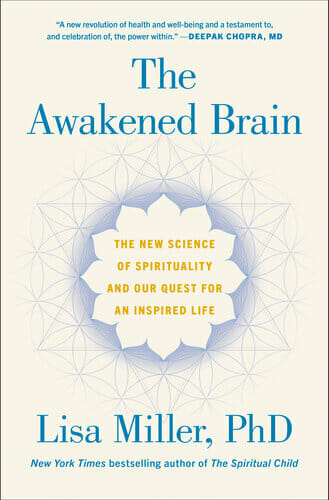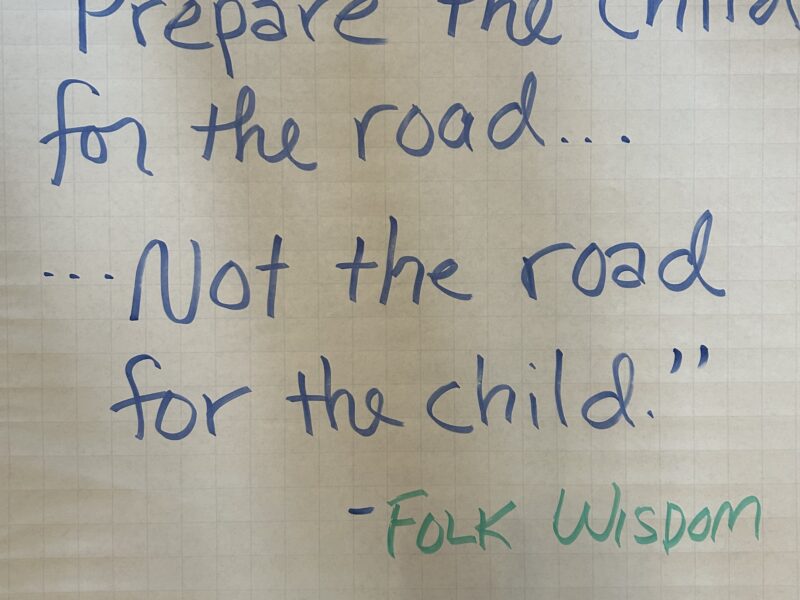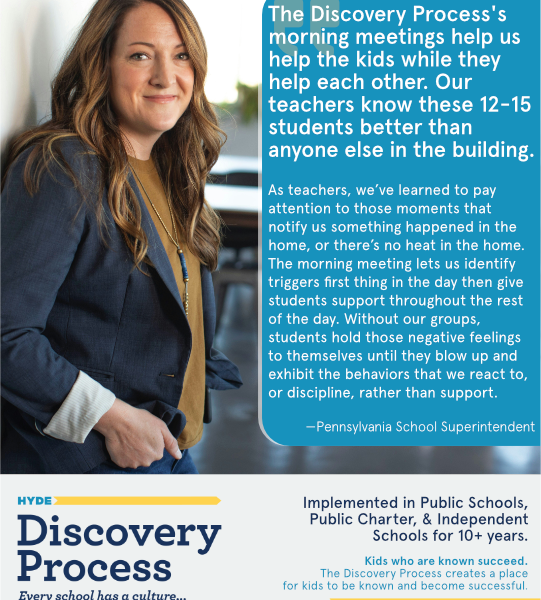Read: The Awakened Brain – The New Science of Spirituality and Our Quest for an Inspired Life by Lisa Miller, PhD

When it comes to our physical health, everybody knows that the best way to keep from getting sick is to maintain a healthy lifestyle. While studying to become a psychologist, Lisa Miller wondered why this same mindset was not more prevalent concerning mental and emotional health. She found herself troubled by a seemingly singular focus on diagnosing and medicating the effects of depression with a surprising lack of attention paid to its causes or to understanding ways that people might develop immunities to protect against an ever-expanding array of named anxieties.
Today a respected professor of clinical psychology at Columbia University, Dr. Miller broke new ground in her field when she established the Ivy League’s first program intentionally combining spirituality and psychology.
One reason her book captured my attention is because my 45+ years of working with kids and families have repeatedly suggested that when it comes to personal growth, people seem more interested in cure than prevention. This book explains the problems resulting from this misplaced prioritization and offers an alternative path.
Given the world’s experiences with the pandemic, all of us have given considerable thought to the word “immunity.” But, again, we generally apply it to matters of physical health. As she immersed herself in her chosen field, Miller observed that some people indeed possessed immunities to mental and emotional anxieties and others did not. She also began to sense that spirituality and a sense of purpose seemed to be essential ingredients to those immunities.
She writes: “I didn’t yet have the science to explain it, but we were beginning to suffer from choices made through what I would later understand to be our achieving brains, chasing down sensible goals—of advancement, protection—that would not fulfill us, that would cultivate stress and fear and disconnection, because outward goals are no substitute for larger meaning and purpose. We were living half-awake, and I didn’t yet know the importance of awakening—much less how to do it.”
She refers to repeated observance of “dysthymia —the low-grade feeling that life is unfulfilling. It feels like emptiness. Hunger. Disillusionment. Life is not what you’d hoped.”
Furthermore, she soon found herself disheartened by her profession’s conventional trend to “delve into patients’ pain without necessarily seeking to build their resilience or renewal; to treat them for six sessions and then refer them to psychiatrists for prescriptions and long-term care.”
Even the promising emergence of Cognitive Behavior Therapy had its shortcomings: “The problem with CBT is that while it can enhance our self-esteem and help us feel more uplifted and hopeful, it doesn’t offer us a bigger life or bigger view of the world. We might feel better about ourselves, but we’re still stuck in a self-referential, ‘little me’ world.”
This curiosity led her to discover what she believed was a connection between spirituality and the absence of depression. Years of case study analysis revealed two distinct types of awareness: 1) Achieving Awareness and 2) Awakened Awareness. She explains, “Achieving awareness is the perception that our purpose is to organize and control our lives. When we live through our achieving awareness, our foundational concern is How can I get and keep what I want?”
Awakened awareness differs from achieving awareness by causing us to be “seekers of our path.” It “allows us to perceive more choices and opportunities available to us, feel more connected with others, understand the relationships between events in our lives, be more open to creative leaps and insights, and feel more in tune with our life’s purpose and meaning.”
While Miller does not argue that one form of awareness is “better” than the other, she began to realize that the majority of her patients presented profiles where awakened awareness had taken a back seat to achieving awareness. So what? She explains,
When we live only through our achieving awareness, we develop a perceptual problem. We have a much-inflated sense of control, even as we become disconnected from the heartbeat of everyone around us. This is a lonely, atomistic, and inherently empty way to be. Even having everything can feel like having nothing. This perception of emptiness just makes us want more and try harder—and so we’re trapped in the cycle of motivation and reward.
And this “trap” makes us all the more susceptible to anxiety and depression. Hence, she calls for a balance between the two modes:
Achieving awareness is necessary. It helps us move and chase the ball up and down the field. But to decide where the ball needs to go, to see the bigger field of play, to be aware of the other players, to understand the consequences and impact of our choices—and to perceive why we are playing the game in the first place—we need our awakened awareness. In other words, our most important decisions can’t be made from achieving awareness alone. We can only perceive reality accurately when we have both foundational modes of awareness on board.
She calls this balance Quest Orientation, describing it as: characterized by a tendency to journey in life: to search for answers to meaningful personal decisions and big existential questions; to perceive doubt as positive; and to be open to change, or more accurately, open to perceiving with fresh eyes, and then using new experience to fuel change. In quest, we open ourselves to the messages from life, take seriously this discovery, and then actively use learning to shape our decisions and actions—our personal operating manual.
So, a healthy person is one whose “questing brain” is able to integrate our achieving and awakened awareness in the interest of our emotional and mental health. This integration, in turn, fuels an immunity that can protect us against debilitating anxieties and depression. Furthermore, it can lead us to reflect the final chapter in this book: “Awakened Heart.”
Onward, Malcolm Gauld



